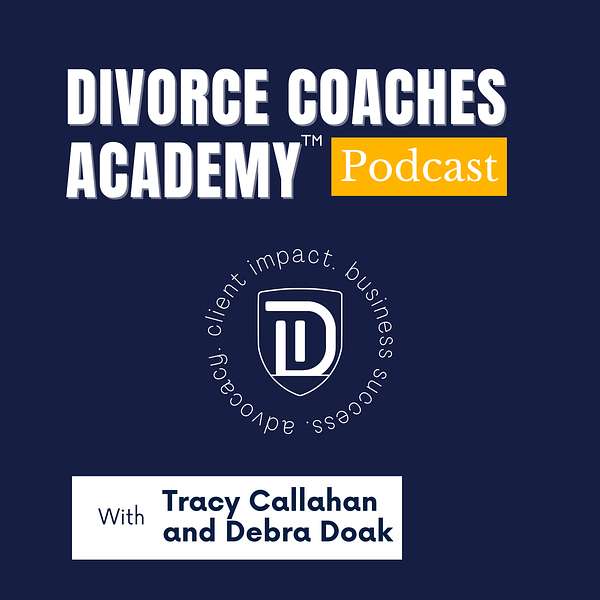
Divorce Coaches Academy
Divorce Coaches Academy podcast hosts Tracy Callahan and Debra Doak are on a mission to revolutionize the way families navigate divorce. We discuss topics to help professional divorce coaches succeed with clients and meet their business goals and we advocate (loudly sometimes) for the critical role certified divorce coaches play in the alternative dispute resolution process. Our goal is to create a community of divorce coaching professionals committed to reducing the financial and emotional impact of divorce on families.
Divorce Coaches Academy
Dollars and Decisions: Why Every Divorce Coach Needs Financial Confidence
Send Us a Message (include your contact info if you'd like a reply)
Afraid you need to be a financial expert to help divorce clients navigate money concerns? Think again! Tracy and Debra dismantle this common fear among divorce coaches by showing how you can effectively support clients through financial challenges without overstepping your role.
Financial uncertainty triggers our most basic survival fears—that's why money is almost always at the center of divorce conflict. According to government research, men's household income falls about 23% after divorce, while women experience a staggering 41% drop. No wonder financial anxiety runs so high! When clients worry about their ability to pay bills or put food on the table, their capacity to make sound decisions, negotiate fairly, or co-parent effectively becomes severely compromised.
The podcast reveals how coaches can guide clients through creating monthly budgets—arguably the most powerful financial tool during divorce. This simple exercise answers the burning question: "Can I support myself?" Through relatable client stories like Martha (who discovered her post-divorce budget was actually half what she feared) and Mary (who reconsidered keeping the family home after seeing the long-term financial impact), Tracy and Debra demonstrate how helping clients gain financial clarity transforms fear into knowledge and powerlessness into control.
They explore practical approaches to addressing income concerns, understanding the marital estate, and preparing clients for productive attorney consultations. Most importantly, they emphasize that coaches don't need calculators or financial certifications to make a difference—they just need to ask the right questions, guide clients through basic exercises, and connect them with specialists when needed.
Ready to feel confident helping your divorce clients with financial foundations? Listen now to discover how you can support clients in making informed, intentional decisions that align with their values and set them up for post-divorce success.
Learn more about DCA® or any of the classes or events mentioned in this episode at the links below:
Website: www.divorcecoachesacademy.com
Instagram: @divorcecoachesacademy
LinkedIn: divorce-coaches-academy
Email: DCA@divorcecoachesacademy.com